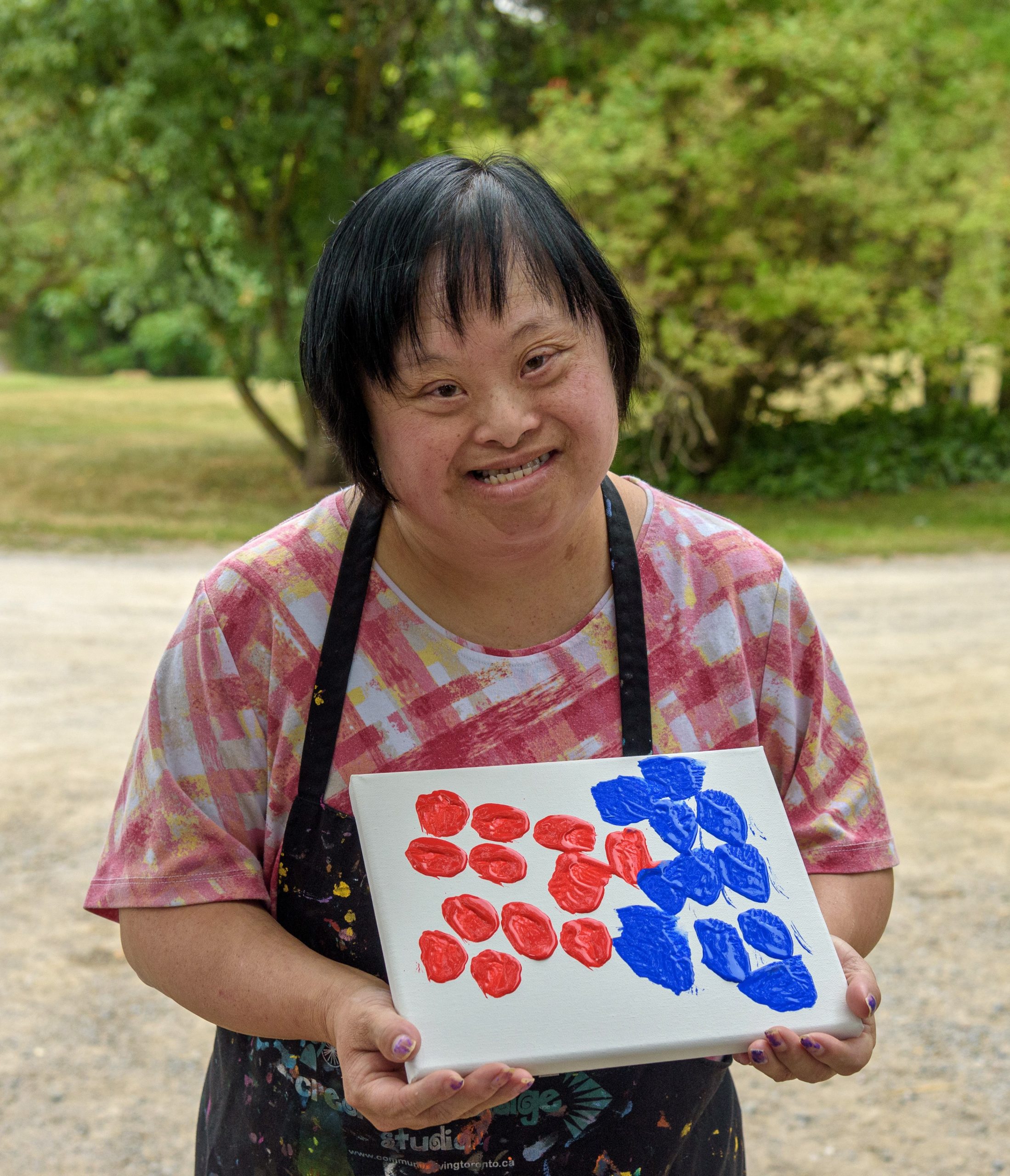Community Living Toronto has long been a source of support for people with an intellectual disability and their families. Community Living Toronto offers a wide range of services including respite, person-directed planning, employment services, supported living, and community-based activities.
Community Living Toronto is proud to support over 4,000 people and their families in more than 80 locations across Toronto. The "community living movement" began with families who wanted their children to live in the community, rather than institutions. Today, Community Living Toronto continues to advocate for inclusive communities and support the rights and choices of people with an intellectual disability.

Our Vision
A society where everyone belongs. A society where everyone is valued.
Our Mission
Community Living Toronto fosters inclusive communities by supporting the rights and choices of people with an intellectual disability.
Our Core Values
Inclusion
Choice
Diversity
Equity, Diversity and Inclusion Statement
Community Living Toronto aspires to a culture where equity and inclusion are naturally occurring, and diversity is embraced as a source of learning and pride.
Community Living Toronto aims for equity through the fair and respectful treatment of all people - staff and individuals served. This will be achieved through an intentional and respectful focus on, and recognition of, everyone's unique qualities and attributes and creation of inclusive environments where all individuals feel respected, accepted and valued.
We believe that supporting and engaging diversity of age, gender identity, sexual orientation, physical or intellectual ability, ethnicity, religion and Indigenous heritage is integral to the services we provide.
As an employer of choice, Community Living Toronto is committed to attracting and retaining a diverse workforce, building and strengthening partnerships, and fostering an environment free of discrimination and harassment.
We will work to ensure that the concepts of equity, diversity and inclusion are understood and barriers are eliminated, so that the EDI (equity, diversity, and inclusion) culture is reflected and celebrated throughout the organization.
DEFINITIONS
An intellectual disability is an impairment in cognitive function that affects areas of daily living, such as personal care, language skills, learning abilities, and the capacity to live independently. It arises before adulthood and usually lasts throughout life.
Equity refers to the fair and equitable treatment of all people, while recognizing that people have different needs. Equity is in the design of our systems and processes, and it helps to uphold diversity and inclusion-related goals and actions. Equity is the process; equality is the result.
Diversity is a concept that includes physical and other characteristics that distinguish one person from another. These include, but are not limited to: gender, race, ethnicity, physical or intellectual ability, age, culture, ancestry, place of origin, citizenship, religious beliefs, family and marital status, learning styles, sexual orientation, gender identity, socio-economic status, social perspectives, values and beliefs.
Inclusion speaks to the extent to which individuals and groups value, respect and embrace differences in knowledge, preferences and perspectives. An inclusive environment fosters respect for individuals, values them for who they are, and generates a level of supportive energy and commitment so that individuals have the opportunity to contribute, thrive and meet their full potential.
Privacy Principles
Take a look at our Privacy Principles
Multi-Year Accessibility Plan
Read our plan here.
![Community Living Toronto [logo]](https://cltoronto.ca/wp-content/themes/communitylivingtoronto2/img/clt-logo.jpg)